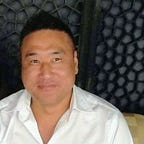Putin: The Empire Strikes Back
Nerve Wrecking: With the months-long buildup of Russian troops at the borders of Ukraine, very few analysts did provide the public with a decent explanation.
What is it that brings out the usual suspects? Is it the ever-patient diplomat Sergey Viktorovich Lavrov, the Putin pleasing Belarusian President Lukashenko, or the stream of the Russian Army elite’s gatherings at the numerous training grounds around Ukraine?
In other words: what has Ukraine to offer in the eyes of Putin?
I take inspiration from Farah Stockman’s previous op-ed: the free-thinking West took China seriously in a bid to counterbalance the Russian policies after the 1950s. The West with the illusion that both autocratic states would contribute to world peace and bring prosperity to a growing educated population of Russia and China.
It is a misjudgment because contrary to the invasion of Ukraine, Putin is a master in hiding his motives to both his alleged partner China and the West.
Ms. Stockman couldn’t have written it better: 'This time, Moscow is the little brother, seeking support from Beijing. It could prove to be among the most consequential geopolitical developments in decades.”
Russia remains after the 1991 fallout, the little brother, and for Putin, with its well-trained past as a bright KGB officer in Dresden Germany, the Ukrainian invasion is the defining moment of putting Russia back on the world stage.
Russia’s development, from an Empire to a human experiment called Marxism, became an enemy of the West by taking stark opposite positions. The continuous search for competition against the West, in sciences, military might, sports, aviation, space, and of course, presenting a different leadership under the Communist model made Russia attractive for many developing countries.
That attractiveness came to a grinding halt after a series of failed decisions effectively bankrupting the then Soviet Union in 1991.
Today the Russian Federation ranks below many Western countries, and Putin itself faces unpopular voices from previous communist countries who were relieved to abandon its outdated policies after the fall of the Soviet Union.
The real threat however came from an increasingly assertive China that within 30 years moved to the world production hotspot. China even managed through skillful planning to recapture a whole set of higher than simple manufacturing industries. Chinese migrants, in the 1960s, out of necessity succeeded in securing financial security in the United States. Their children received an excellent education, and in turn, contributed to the wealth of the United States and the West. China’s strategy around 2000 to lure both foreign investments and highly trained Chinese from top U.S. universities proved the winning concept of riding the top 10 world rankings.
Technological dominance is soon well in reach of China with the opportunity to lead in semiconductors, the aeronautical industry, and sophisticated automotive designs.
Where does this leave Russia? Even by removing the existing Western-placed sanctions, Russia’s strategy of offering a better political system to other countries is met with lukewarm support. It’s favorable foreign policy only accounts for a handful of countries such as Syria where they had measurable success. Many however of Russia’s clientele reside across the African states with no economic priorities and thus they cannot fill the coffers of Russia needed to compete against China.
To make matters worse for Russia: China launched the Belt and Road program and sells developing countries a whole set of affordable one-stop services to renew economic activities. Needless to point out that China takes a very structured approach to literally subject a recipient to support their present and future political decisions. Such is China’s influence nowadays that, for example, only a handful of countries dare to recognize Taiwan.
That leaves Putin with the very real issue of sliding further off the world ranking list, supported by the fact that many former Soviet Union countries like Georgia and Ukraine openly turn against Russia.
Thus in Putin’s calculations: an assault on each of them falls well within Russia’s influence without permanent damages. To force cooperation and secure both the areas of Ukraine and Georgia, together with Belarus, a gateway opens to Europe, the main target of interest to Putin.
Like in the Star Wars movie: The Empire Strikes Back, Ukraine and Georgia are seen as unruly rebels that smash Putin’s plan to geographically squeeze out all the benefits from an always compromise seeking, read a rich, Europe. An Europe, in Putin’s eyes, without China’s influence.
